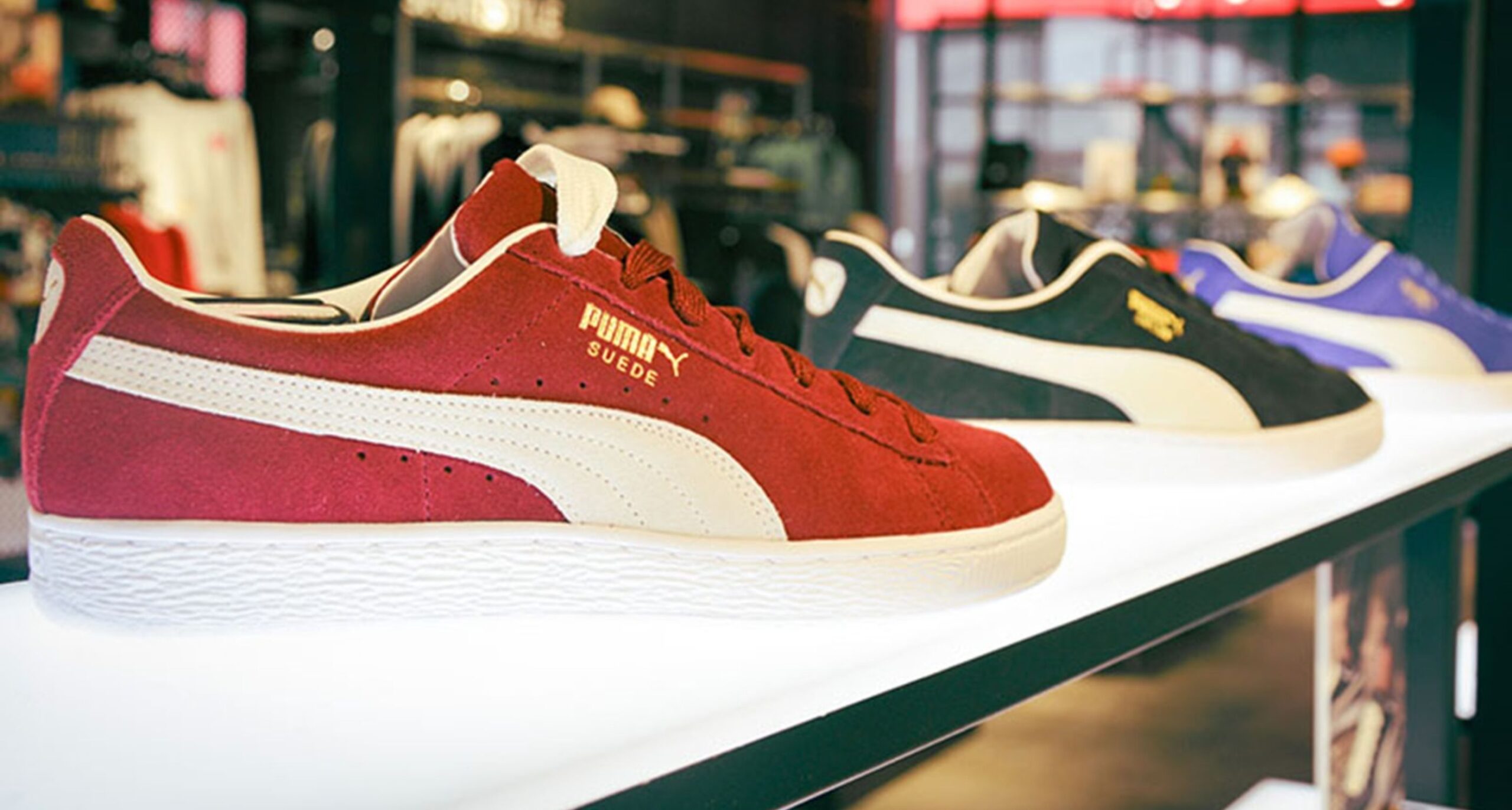As Puma is recognised for leadership in corporate transparency and performance on climate change by global environmental non-profit CDP, securing a place on the annual ‘A List’, the RetailX Global Sports Sector 2023 report looks at the third-largest sportswear manufacturer in the world.
Puma was set up by the brother of the founder of Adidas. In 1924, Rudolf and his brother Adolf ‘Adi’ Dassler had jointly formed the company Gebrüder Dassler Schuhfabrik (‘Dassler Brothers Shoe Factory’). The relationship between the two brothers deteriorated until they agreed to split in 1948, forming two separate entities, Adidas and Puma.
Somewhat in the shadow of the better known Adidas, Puma has some notable chapters in its long history. It was the first shoe company to use rubber vulcanisation to bond the sole and body of its shoes. Legendary footballer Pelé won two football World Cups wearing Puma boots. Usain Bolt was also wearing Puma running shoes when he set world records in the 100m, the 200m and the 4 x 100m relay at the Beijing Olympics.
Puma’s sales have rocketed across the past few years, with growth in 2021 and 2022 in double digits and traffic to its sites growing dramatically in 2020, 2021 and 2022. Sales in 2021 were the highest in Puma’s history, driven by growth across all regions but particularly in the US.
This was a result of concerted marketing to generate brand heat around athletes and sports people winning in Puma kit at the delayed Olympics and UEFA European football championships. Developing new products, especially for women, has also help drive up sales at the company.
While these success have carried over internationally, Puma is also set to focus more on local relevance, taking more of an active brand role in Handball in Europe, Australian rules football in Australia and in cricket across Asia, the UK and Oceania. The company is currently using Nigerian singer Davido as a brand ambassador to grow sales in sub- Saharan Africa.
Puma has pledged to make 90% of its products from more sustainable materials by 2025, kicking things off with a new shoebox design launched in 2021 that will save 2,800 tonnes of cardboard annually. The company is driving the industry initiative ‘Fashion Charter for Climate Action’ by committing to help limit the global temperature rise to 1.5 ̊C above pre-industrial levels.
This profile was authored by Paul Skeldon, and originally appeared in the RetailX Global Sports Sector 2023 report.
Download the full report for insight into:
- Who are the largest 50 global sports brands and how do they perform?
- How Athleisurewear and fashion sports have saved this sector
- How Asia is leading the way in sports goods sector growth after a post-pandemic slowdown
- How sports sales are dominated by Gen Z
- Sports goods consumers want to be sustainable but they also like high turnover and brand new items
- How consumers shop: online versus instore
- What is next for this sector as consumers become more tech-orientated?










